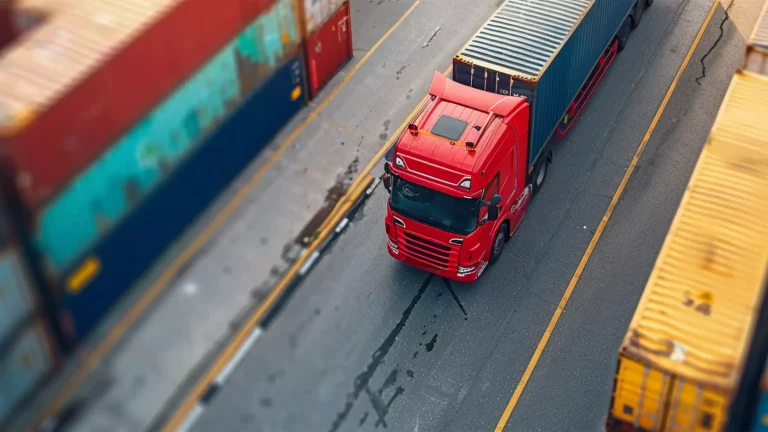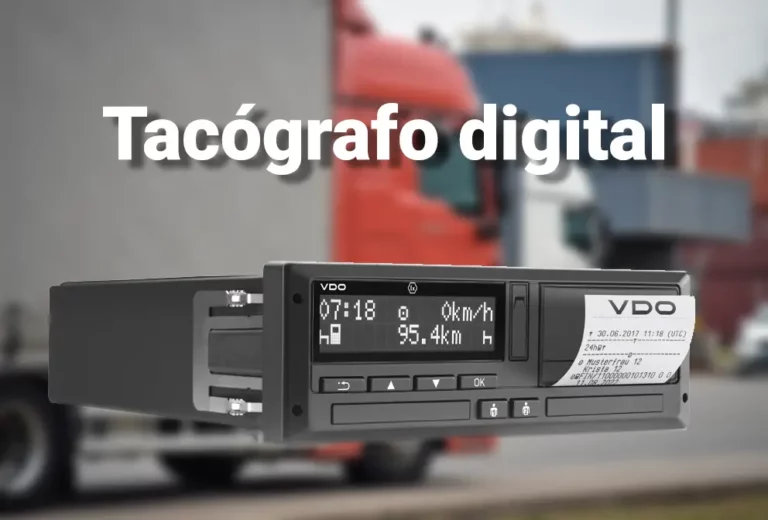
The Future of AI-Based Fleet Management Systems
Fleet management has entered a new era thanks to the integration of artificial intelligence (AI). This technological breakthrough is revolutionising the transport sector, optimising processes and ensuring efficient use of resources.

The Benefits of Fleet Management for the Passenger Sector
Fleet management is key to the passenger transport sector, helping to improve efficiency, reduce costs and ensure the safety of passengers and drivers. The main benefits of fleet management in this sector are detailed below.

The Benefits of Fleet Management for Freight Transport
Fleet management is essential in the freight transport sector as it optimises efficiency, reduces operating costs and improves safety. The following are the key benefits of implementing fleet management in freight operations.

Key trends in Fleet Management for 2025
Fleet management is undergoing a significant transformation in recent years, mainly driven by various technological advances that have been incorporated into day-to-day business, regulatory changes and growing environmental awareness. As we approach 2025, fleet management companies are faced with the need to adapt to this increasingly competitive environment.

What every fleet management system should have: 10 key requirements
Fleet management is a key issue in the transport and logistics industry, as well as for any company that owns a fleet to run its business. An efficient fleet management system enables companies to maximise productivity, reduce costs and improve safety.

Trends and Future of the Digital Tachograph in the Transport Industry
The transport industry, in its constant evolution, is updating the different technologies that improve the sector, such as the mandatory implementation of the digital tachograph in all trucks. This device, which registers the activity of drivers and vehicles, has become an essential tool for guaranteeing road safety and compliance with regulations. For this reason, the European Union is making it compulsory to update these devices, which are called second generation digital tachographs.

The power of real-time data: Improved decision making through telematics solutions
The integration of real-time data has revolutionised many aspects of logistics and transport. For those of us involved in fleet management through telematics solutions, this technology has become essential to improve efficiency and decision-making. But what does real-time data integration really mean and how does it apply to this sector?

Fagor Electrónica acquires Sateliun’s telematics business to strengthen its market presence
At Fagor Electrónica – Smart Data Services, we are excited to announce the acquisition of the telematics business of Sateliun, a company renowned for its innovative vehicle tracking and monitoring technology. This strategic acquisition will allow us to further strengthen our market position.

From Idea to Reality: Interview with the Team Behind the New Version of FlotasNet
The product team at FlotasNet has launched a new version of their fleet management platform, offering advanced solutions. In this interview, the team shares the challenges, technologies, and key improvements of the update, transforming fleet management towards a more efficient and connected future.

Fuel savings: the importance of tires
Fuel efficiency depends on the rolling resistance of tires. Low rolling resistance tires improve this efficiency. Maintaining the correct tire pressure is crucial. Assessing the vehicle’s needs and performing regular maintenance are essential. Choosing the right tires and considering the climate and road conditions saves fuel and reduces environmental impact.

Low emission zones in fleet management
Sustainability is a growing concern, focusing on reducing greenhouse gas emissions and seeking alternative energies. A crucial aspect is the transition to electric vehicles and the protection against pollutant emissions. The European Union has assigned its member countries the responsibility of creating low emission zones (LEZ) to improve urban air quality by restricting access to polluting vehicles.

Electric Fleets: Yes or No?
The adoption of electric fleets is a trend in the transport, logistics or distribution sector, mainly driven by the need to reduce greenhouse gas emissions and promote sustainability